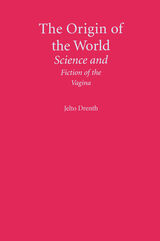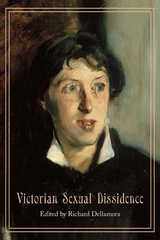2 books about Sex customs in literature

The Origin of the World
Science and Fiction of the Vagina
Jelto Drenth
Reaktion Books, 2004
The Origin of the World is a revealing, intimate, and ultimately liberating study of female sexuality at its heart: the vagina. Working from the assumption that sex is pleasurable and fulfilling insofar as its participants fully understand how it works, sexologist Jelto Drenth gives readers a guided tour of the complex, challenging, and often misunderstood "origin of the world."
Drenth describes the workings of the vagina in simple language, enriching his description throughout the book with the imagery, mythology, lore, and history that has surrounded the vagina since the Middle Ages. The Origin of the World moves from basic physiognomic facts to the realms of anthropology, art history, science fiction, and feminist literature-all in the service of mapping the dark continent. Drenth's journey takes him from Renaissance woodcuts to vibrators, clitoridectomies to "virginity checks," fears of the vagina (the vagina dentata) to its celebration. Part medical exposition covering the function of female genitalia from orgasm to pregnancy and part cultural history discussing contemporary and historical views of such aspects of the feminine as pubic hair, Freud's theories of coitus, and slang terms for the vagina, The Origin of the World is encyclopedic in its breadth, fascinating in its content, and familiar in its subject.
This lightly written exploration can be seen as both an owner's manual and a guide for the perplexed. Women and men alike will benefit from its entertaining erudition and from its fundamental mission of demystifying sex and sexuality in the service of greater understanding and, from that understanding, greater pleasure.
Drenth describes the workings of the vagina in simple language, enriching his description throughout the book with the imagery, mythology, lore, and history that has surrounded the vagina since the Middle Ages. The Origin of the World moves from basic physiognomic facts to the realms of anthropology, art history, science fiction, and feminist literature-all in the service of mapping the dark continent. Drenth's journey takes him from Renaissance woodcuts to vibrators, clitoridectomies to "virginity checks," fears of the vagina (the vagina dentata) to its celebration. Part medical exposition covering the function of female genitalia from orgasm to pregnancy and part cultural history discussing contemporary and historical views of such aspects of the feminine as pubic hair, Freud's theories of coitus, and slang terms for the vagina, The Origin of the World is encyclopedic in its breadth, fascinating in its content, and familiar in its subject.
This lightly written exploration can be seen as both an owner's manual and a guide for the perplexed. Women and men alike will benefit from its entertaining erudition and from its fundamental mission of demystifying sex and sexuality in the service of greater understanding and, from that understanding, greater pleasure.
[more]

Victorian Sexual Dissidence
Edited by Richard Dellamora
University of Chicago Press, 1999
Recent critical and historical work on the late-Victorian period has furnished a vocabulary for discussing gender and sexuality. These popular terms include categories such as homo/hetero, patriarchal/feminist, and masculine/effeminate. This collection exploits this framework—while refining and resisting it in places—to show how certain Victorians imagined difference in ways that continue to challenge us today.
One essay, for example, traces the remarkable feminist appropriation of male-identified fields of study, such as Classical philology. Others address the validation of male bodies as objects of desire in writing, painting, and emergent modernist choreography. The writings shed light on the diverse interests served by a range of cultural practitioners and on the complex ways in which the late Victorians invented themselves as modern subjects.
This volume will be essential reading for students of British literary and cultural history as well as for those interested in feminist, gay, and lesbian studies.
Contributors are: Oliver Buckton, Richard Dellamora, Dennis Denisoff, Regenia Gagnier, Eric Haralson, Andrew Hewitt, Christopher Lane, Thaïs Morgan, Yopie Prins, Kathy Alexis Psomiades, Julia Saville, Robert Sulcer, Jr., Martha Vicinus.
One essay, for example, traces the remarkable feminist appropriation of male-identified fields of study, such as Classical philology. Others address the validation of male bodies as objects of desire in writing, painting, and emergent modernist choreography. The writings shed light on the diverse interests served by a range of cultural practitioners and on the complex ways in which the late Victorians invented themselves as modern subjects.
This volume will be essential reading for students of British literary and cultural history as well as for those interested in feminist, gay, and lesbian studies.
Contributors are: Oliver Buckton, Richard Dellamora, Dennis Denisoff, Regenia Gagnier, Eric Haralson, Andrew Hewitt, Christopher Lane, Thaïs Morgan, Yopie Prins, Kathy Alexis Psomiades, Julia Saville, Robert Sulcer, Jr., Martha Vicinus.
[more]
READERS
Browse our collection.
PUBLISHERS
See BiblioVault's publisher services.
STUDENT SERVICES
Files for college accessibility offices.
UChicago Accessibility Resources
home | accessibility | search | about | contact us
BiblioVault ® 2001 - 2024
The University of Chicago Press









